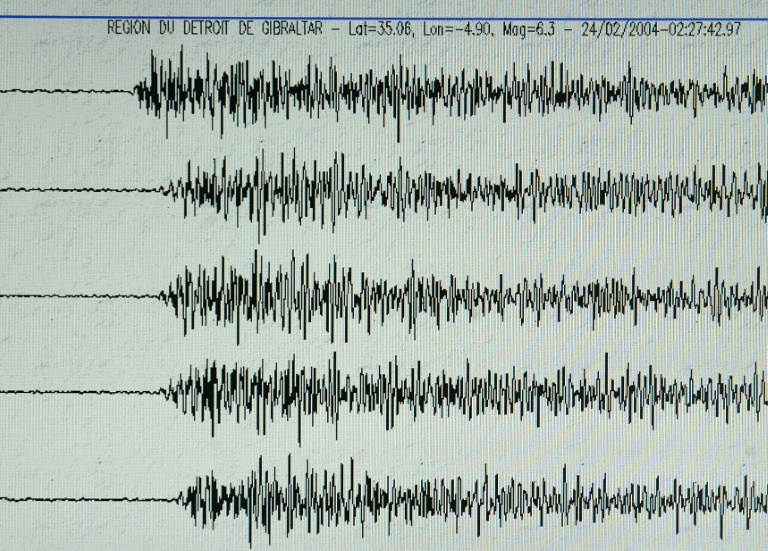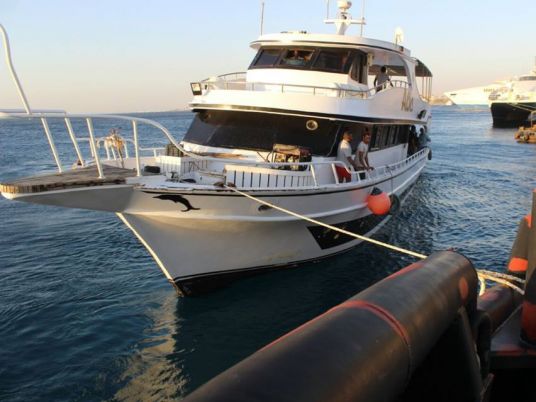Egypt's 25 January uprising has unexpectedly sparked fresh interest in environmental issues. NGOs concerned with solid waste management are taking advantage of the positive climate to reorganize themselves and address this environmental problem in creative ways.
Earlier this month, the Spirit of Youth Association (SYA), an NGO located in the Cairo suburb of Mokattam, saw an opportunity to raise awareness about solid waste management by highlighting the importance of the source-segregation of waste.
Fifty containers segregating organic from non-organic trash were installed on every corner of Cairo's now-iconic Tahrir Square, and a team of 35 young people from Mokattam stood close to the containers in order to educate the public on the importance of waste segregation. Six trucks will transport the trash collected from the square on a daily basis.
This type of awareness initiative sheds light on the kind of opportunities that the uprising has given rise to.
SYA board member Leila Iskander, who also heads consultancy firm CID, is confident that Egypt's post-revolution era represents a "pivotal moment" for garbage collectors.
“During the 18 days of the revolution, the multinationals in charge of collecting garbage stopped their activity, while local garbage collectors continued to pick up garbage door to door and transport it to Manshiyet Nasr,” she said. Since these multinationals first began their activities back in 2003, the garbage collectors have never ceased their activity, but have done so underground.
About one year ago, CID, which specializes in community development, issued a proposal recommending that these multinationals only concentrate in collecting organic waste, while the garbage collectors would be put in charge of all the non-organic waste.
“This is the best solution for two reasons,” explains Iskander. “First, the multinationals would make more money if they only picked up organic waste because they have contracts with manure factories; and, second, the garbage collectors recycle non-organic waste in a much more efficient way and need this activity to ensure their livelihoods.”
CID presented its proposal, dubbed “7 jobs for each ton of waste,” to the minister of environment, the governor and the multinationals. Only the latter were not enthusiastic about it, says Iskander, “because they had no idea how to implement the different points of this proposal."
In light of the fast-paced transformations Egypt is currently undergoing, CID has reissued this proposal, along with two new propositions.
“In this updated version of the proposal, we insist on the importance of source segregation between organic and non-organic items,” explains Iskander, stressing that the SYA had launched an awareness campaign one year ago to encourage restaurants and hotels to separate waste at the source. “We now need to persuade citizens to follow suit, and the garbage collectors themselves will be in charge of educating the public when they collect the trash from people’s houses,” she says.
The second new recommendation involves garbage collectors being organized in small- and medium-sized enterprises (SMEs) that would be partly owned by NGOs from the districts from which they collect garbage, thus formalizing their activities.
SYA Executive Director Ezzat Naeem explains that his NGO has been the only one from the three that currently exist in Manshiyet Nasr–the Association for the Protection of the Environment (APE) and the Garbage Collectors Association being the two others–that decided to send trucks and young volunteers to Tahrir Square during and after the uprising to keep the area clean and raise awareness.
“This revolution is a great chance for the community of garbage collectors, because the new regime will be more transparent and more respectful towards marginalized people,” said Naeem. “This is our chance to build a new system and obtain our rights.”
Some 500 km southwest of Cairo on the Red Sea coast lies the city of Hurghada, with a quarter of a million inhabitants. Surprisingly, in spite of the bubble of quietness this coastal city enjoyed throughout the revolution, peoples’ interest in environmental issues was also awakened.
Ahmed Droubi, project manager for the Hurghada Environmental Protection and Conservation Association (HEPCA), which specializes in marine and land conservation, explains that he had observed “important changes in people’s attitude towards the environment and the protection of their living areas. It seems that people have rediscovered a sense of ownership of the country, and they are more ready than ever to protect it.”
This new interest comes at the right time for HEPCA which has been entrusted by the Red Sea Governorate with collecting solid waste for the whole city of Hurghada. One year ago, the NGO launched the “Hadaba Cleanup Campaign,” a pilot project aimed at implementing an efficient solid waste collection system in this wealthy district, many areas of which had become dirty and unsanitary.
“At first, our aim was to clean up this area so plastic bags would not end up in the sea, choking sea mammals, marine turtles and coral reefs,” says Droubi. “To achieve this, we had to launch a campaign to change the solid waste disposal habits of local residents.”
The group's success in this campaign led to its being mandated with overseeing the waste management for the entire city, which produces about 300 tons of waste daily. In order to prepare for this, HEPCA conducted a comprehensive study of the city.
“We got estimate numbers on the waste production for each district today and in the future, and in doing so, we took into consideration migration, authorization for construction, growth rate…We also looked at the economical strata of the various districts and their corresponding waste production,” Droubi explains.
There have, however, been some unforeseen disruptions. “Our shipment is still blocked at the port of Alexandria, so we are now working at 40 percent of our capacity. Half the compactor trucks and most of the containers are still in Alexandria,” he says. At full capacity, HEPCA will have 57 trucks with a capacity ranging between 9 cubic meters and 80 cubic meters, 800 containers in the streets located at a maximum of 75 meters from each house, and a team of 450 workers.
HEPCA is putting pressure on the city’s numerous hotels to segregate their waste between organic and non-organic at the source, because hotels alone are responsible for almost half of the waste produced in the city every day.
“We collect waste for free," says Droubi. "But we refuse to do so unless it is segregated. The tourism ministry and the Egyptian Chamber of Hotels are helping us implement this basic rule."
Like Iskander, Droubi admits that the most difficult task will be to change the habits of local residents themselves. HEPCA has launched awareness campaigns targeting certain residential and wealthy neighborhoods, which, says Droubi, “have a higher level of awareness.”
But raising awareness, getting the public to segregate organic from non-organic items, and having an efficient system for waste collection and transportation are only the first steps. HEPCA is already dreaming of the day when it can run a comprehensive solid waste management system for the entire governorate.
“In this case, we would control every step, from collection to segregation to recycling," Droubi says. "The recycling part would lead us to partner up with specialists in different recycling methods, for metals, cardboard or plastics.”
After that, he adds, the ultimate dream would be the realization of a fully carbon-neutral governorate.




